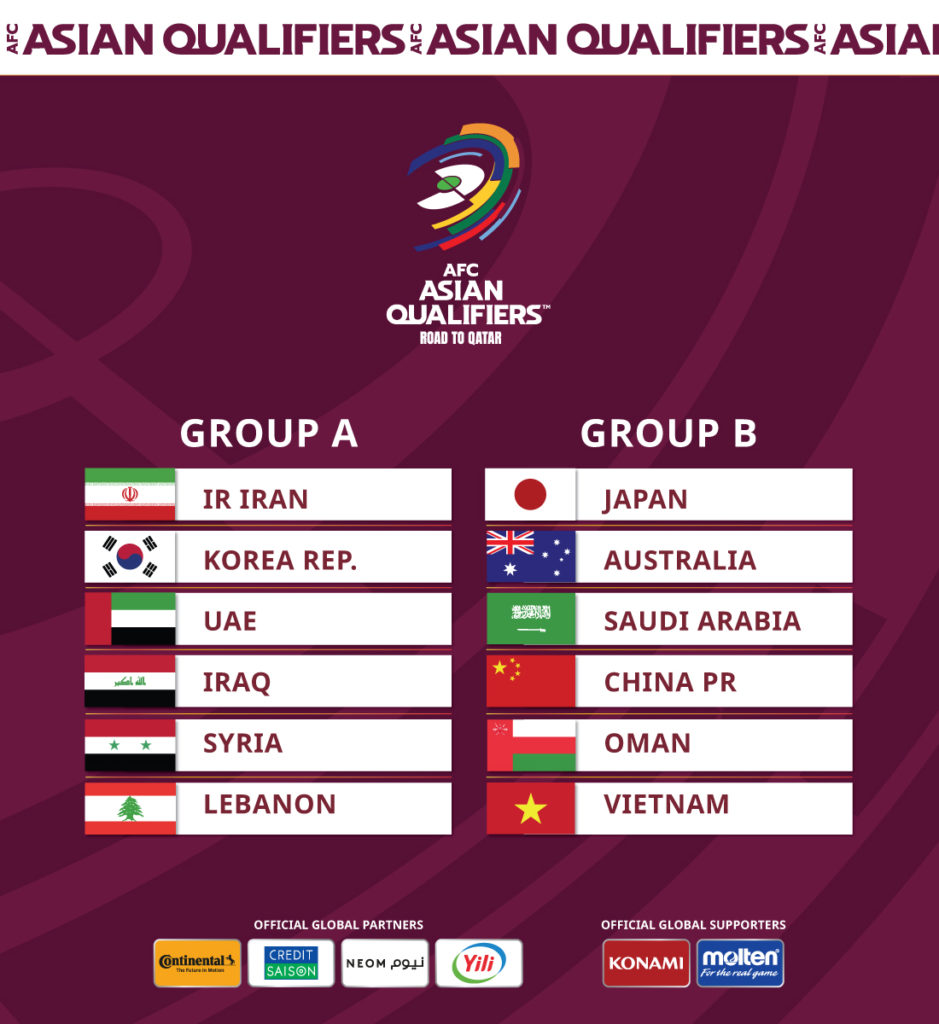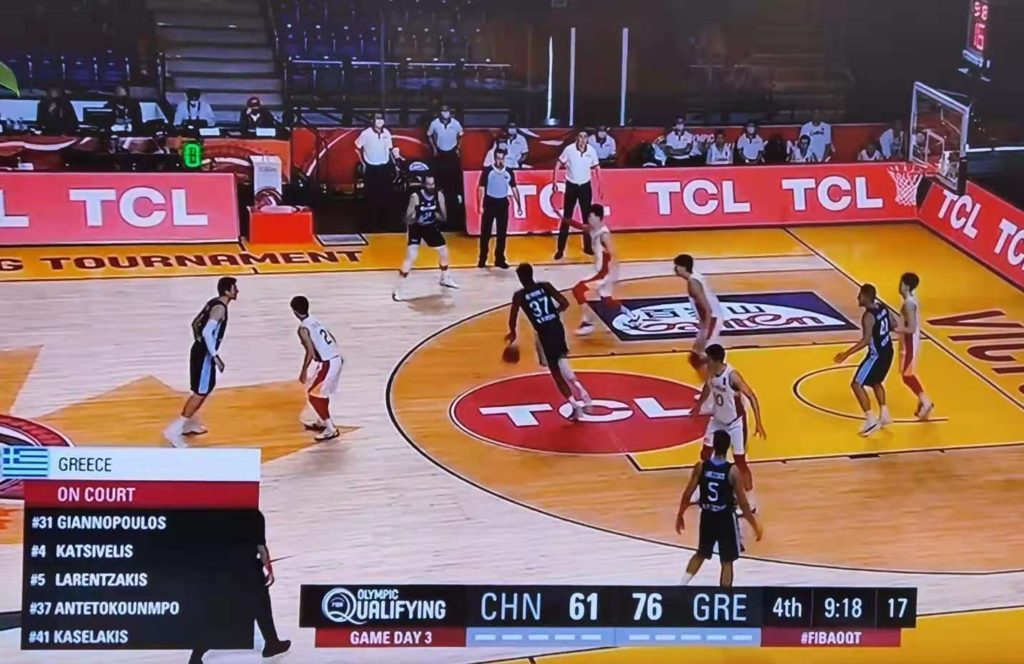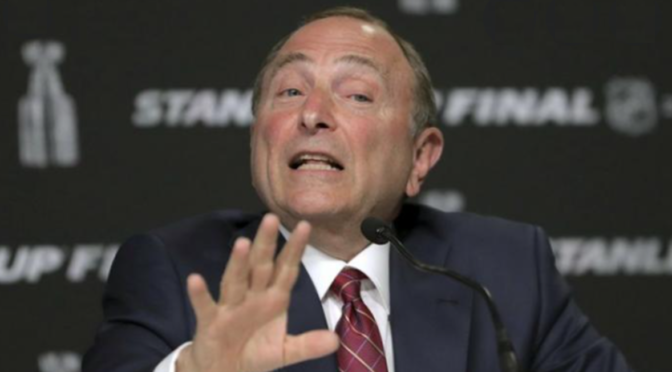In this week’s look at all the latest news in the build-up to the 2022 Olympics and elsewhere:
- NHL’s decision on Beijing Olympics comes down to the wire
- Team China lining up “heritage players” despite contract standoff
- Japan, Australia block China’s route to World Cup qualification
- Men’s basketball team misses Olympics for first time since 1984
- The latest 2022 Olympics boycott talk from around the world
- All the other features and stories of interest
NHL’s Olympic Decision Looms
I’ve written before at length about the current plight of China’s ice hockey team and about how facing a roster of NHL stars at the 2022 Winter Olympics could turn into a disaster for the hosts. As hockey coach Mark Simon, who’s spent many years in China working at the grassroots level, says in this recent Bloomberg piece, “The only chance China doesn’t embarrass itself [at the Olympics] is if the NHL doesn’t send any players and the China national team includes heritage players,” (referring to North Americans of Chinese descent who could be naturalized and play for China next February). Well, there have been some developments on both of those two fronts.
Let’s start with the NHL, because the presence (or not) of their players at the Olympics will arguably have the biggest impact on this equation. Commissioner Gary Bettman was speaking during his annual State of the NHL address during the Stanley Cup Finals this week and had some comments about the Olympics that were, frankly, a little worrying:
“We don’t know [if the NHL is going to Beijing] as of right now, and that’s causing us, in addition to consternation, a fair number of issues relative to getting next season up and running. It’s reaching the point that we’re getting concerned about the impact on the season because of the uncertainty. We have real concerns about whether or not it’s sensible to have our players participating and us shutting down for the Olympic break, but we made a promise that if it can all be worked out, then we’ll go along with it. But we are concerned both about the timing right now and about the open issues and about the prospects of actual being there.”
Deputy Commissioner Bill Daly, seated alongside Bettman, added the following:
“It’s still very much a work in progress. All parties are engaged. You know what the league’s traditional and historical position has been on the Olympics. We remain of that view, and, in fact, with the future Games in Beijing and the continued uncertainty with the virus and the Games being halfway around the world, [this is] not necessarily an ideal Games to elect to go to. Having said that, we negotiated in good faith with the Players’ Association last summer. We agreed that if the conditions were right and we could reach agreement on all the material issues that we would commit and support going to the Olympics, and that remains our position.”
It’s important to remember that the NHL and its owners under Gary Bettman have never wanted the players to go to the Olympics. To allow them to do so means shutting down their league for three weeks, and risk having their star players return home tired or, worse, injured. The upside for the league/owners – namely, promoting the game in China – is a long-term goal of unknown proportions, with no immediate pay-off. Many of those owners could be long gone by the time the China market ever starts to pay dividends. In other words, it’s easy for them to readily discount that upside.
Given that context, it’s hard to read the quotes from Bettman and Daly on potential NHL participation in the Olympics as anything other than the league using COVID-19 as the perfect excuse to renege on its promise made last summer to let the players go the Olympics. Issues still to resolve include details about travel and insurance, but the quarantine one is a biggie: the NHL, naturally, wants no quarantine requirements for its players (and, reportedly, family members, too), since that would further extend their Olympic break. The current idea is that players would go straight into a bubble in Beijing, as we’ve seen work fairly successfully in North American sports over the past year.
But there are a lot of things in play here, with five parties – the NHL, the players’ association (NHLPA), the IOC, Beijing’s organizing committee (BOCOG), and hockey’s world governing body (IIHF) – all involved. The IOC understandably wants to wait and see how things play out in Tokyo with respect to the pandemic, before giving any kind of commitments for Beijing. If bubbles don’t work out in Japan, then they’d want to require quarantine or some other arrangement. Other countries and players are affected, too, but the NHL wields by far the most importance.
Meanwhile, the NHL wants a decision now so that they can plan for the season ahead. In fact, their original stated deadline for a decision was the end of May, with their internal deadline set at the end of June. Now we’re hearing the league wants its schedule finalized by the weekend of July 23 – the same date that the Tokyo Olympics begin.
By mid-may, the IOC had verbally committed to underwriting the previous areas of contention that had caused the NHL to skip the 2018 Olympics in Pyeongchang – charter travel and costs for insuring player contracts against injury etc – and prospects of finalizing a deal were looking promising. But six weeks later, we’re still not there yet and time is running out.
The players, remember, are desperate to go. This quote from Tampa Bay’s Swedish defenseman Victor Hedman is representative of many:
“The Olympics is one of the biggest dreams of mine and I haven’t been able to participate in one. This might be the last chance I get. That sucks to hear [that we might not go]. To get an opportunity to represent your country on the biggest stage, it’s one of those things that you’ll probably never forget. And, for me, it’s obviously something I’ve been dreaming about my whole life and something I want to do before I hang up my skates.”
At this point, it’s a question of which side will blink first – and Bettman is a master negotiator. But there’s still a decent chance the NHL players will end up in Beijing. I shared the results of a poll with an NHL exec this week to gauge the reaction. The Athletic had surveyed their writers and 92.7% thought NHL players would go to Beijing. I asked if the exec shared the survey’s confidence. “I don’t,” came the reply, “But we will probably go.”
Watch this space…
China Seeks Reinforcements from Heritage Players
As much as hockey fans around the world want to see NHL players at the Olympics, as a best-on-best tournament competing for the sport’s ultimate international prize, whether or not they will appear has huge implications for Team China, who will face both Canada and the US in the group stages of the men’s Olympic tournament.
The predictions for a game between the current Chinese Olympic squad and a team of NHL stars have ranged all the way up to 100-0 – an exaggeration, perhaps, but indicative of the gulf in class between the two sides. As mentioned above, there are two main ways to reduce that gulf in class:
- NHL players don’t play in the Olympics (see above)
- Team China brings in some reinforcements (see below).
Recruiting players from overseas has been the plan for years, although with several parties involved, developments stalled to the point of stopping. However, with the Olympics coming into view on the horizon, thereby sharpening the focus of all involved, we’re – finally – seeing some movement on this front.
I’m hearing that offers have been made to several North American players of Chinese descent – most of whom have already played for Kunlun Red Star (KRS), the sole Chinese team in Russia’s KHL, or with their affiliate teams. But those players have since returned home and currently appear to be spending their days on golf courses across Canada, judging from their social media feeds.
The idea would be that they would play in the upcoming KHL season for KRS, and would then play for China at the Olympics. But with the Chinese team in dire straits, the players know they hold the bulk of the negotiating power right now. The offers on the table have been described as “shit”, so don’t expect to see too many signed in the immediate future, but with the KRS training camp set to start later this month in Russia (where the team will play all its games), time is also of the essence here.
The team will also need to resolve the naturalization issue – i.e. switching the players’ nationalities to Chinese – one way or another, but with time running out, it’s thought that the players will get some sort of diplomatic passport or exemption, so they won’t have to give up their existing passports. Technically, this runs counter to China’s Nationality Law, which forbids dual citizenship, but – as with just about anything in China – where there’s a will, there’s a way. The IIHF would also have to waive its standard eligibility requirements, but as I’ve previously written, they stand ready to do this if it helps avoid embarrassingly one-sided games at the Olympics.
China’s women’s team is also making some progress along the same lines, although there’s not as much urgency on this front because the gap between China and the other Olympic teams is not as large – though China definitely still needs some outside help to be competitive.
A new issue that has cropped up here is the possible recruitment of US-based college players, such as Canadian goalkeeper Tia Chan, who plays for the University of Connecticut and is reportedly under consideration for Team China. But it’s possible that Chan, like other college players, would lose her college eligibility – and, by extension, her scholarship – if she plays for the Chinese team, which will prepare for the Olympics by playing in the WHL, Russian’s professional women’s hockey league.
The China Ice Hockey Association intends to send letters of support on behalf of these college-recruited players to say that any participation in a professional league would purely be due to Olympic preparation – but ultimately the final decision would rest with the NCAA, so there’s a certain amount of risk involved, even though playing in the Olympics is a huge draw.
Japan, Australia Stand in Way of China’s World Cup Qualification

I gave a detailed breakdown of China’s 2022 FIFA World Cup qualification hopes here, so won’t repeat myself. By the draw was made this week and China is in a group with Japan and Australia. The teams were seeded in pairs, meaning the relative strength of each group was always going to be very even. For what it’s worth, though, head coach Li Tie described the draw as “really good” for China.
The AFC has scheduled games in pairs over five designated weeks from September to March, although international travel could make that arrangement tricky. China will open its campaign with a bang against Australia on September 2, before taking on Japan five days later.
China’s Olympic Basketball Hopes Ended
China’s men’s basketball team is out of the FIBA Olympic qualifying tournament in Victoria, Canada, after consecutive losses to Canada (109-79) and Greece (105-80) in its three-team group ended any chance of progressing. With Greece up by 20 points at half-time, the end result was never in doubt. However, there were some fairly extraordinary comments after the game by Chinese head coach Du Feng about Greece, a team ranked sixth in the world.
“We didn’t fully prepare for this game at the start, and thought it would be an easy one to handle. They showed great competitiveness in defense, and we failed to make response on the offensive end, thus digging a big hole in the first quarter.”

Greece joins Canada to advance from Group A, with Turkey and the Czech Republic advancing from Group B. China ends the tournament ranked dead last in sixth place, behind Uruguay, who also failed to advance.
Two years ago, China narrowly missed out to Iran on qualifying for the Olympics as the top-ranked Asian team, after finishing 24th at the 2019 FIBA World Cup in China. Contrary to some reports, Japan’s automatic place as host did not affect the usual Asian qualification spot. China’s men’s team will now not feature at an Olympic Games for the first time since 1984.
However, it’s not all bad news. The women’s team will still line up in the 12-team 5-a-side tournament, while China will have both men’s and women’s teams competing in the eight-team 3×3 tournaments in Tokyo.
Olympic Boycott Watch
No additional commentary from me for this section this week, but here are a few relevant links:
- Beijing Olympics—Move ’Em or Leave ’Em? [WSJ letters]
- Beijing 2022 Olympics: ‘If genocide isn’t our red line for a full boycott, then I really don’t know what is’ [DW]
- Why boycotting the Beijing Olympics would strike a distinct cultural blow to the Chinese government [CBC]
Other Stories and Links
- Alonso says Zhou ‘executed FP1 perfectly’ in his place at the Red Bull Ring [Formula 1]
- Table tennis-China eyes another clean sweep but challenges ahead [Reuters]
- Who’s Who: Meet China’s Olympic Climbing Team [Climbing.com]
- China No 1 Zhang Shuai cut from Tokyo 2020 Olympics tennis team [SCMP]
- Wimbledon 2021: China’s history-maker Zhang Zhizhen bows out in opening round after five-set thriller [India Today]
- Beijing Winter Olympic Village completed [Xinhua]
- Main Media Center of Beijing Olympic Winter Games completed [Xinhua]
- Sui Wenjing/Han Cong to launch Beijing Games season on Skate Canada [Xinhua]
- China’s Alex Hua Tian inspires new generation of riders with mainland team set to make eventing history [SCMP]
To keep up-to-date with all the latest news from China Sports Insider, please click on the “SUBSCRIBE” button in the top right corner of this page (or see below on mobile version). Follow along on Twitter for regular updates.



8 thoughts on “NHL Players Could Miss Out On Olympics As Deadline Looms”